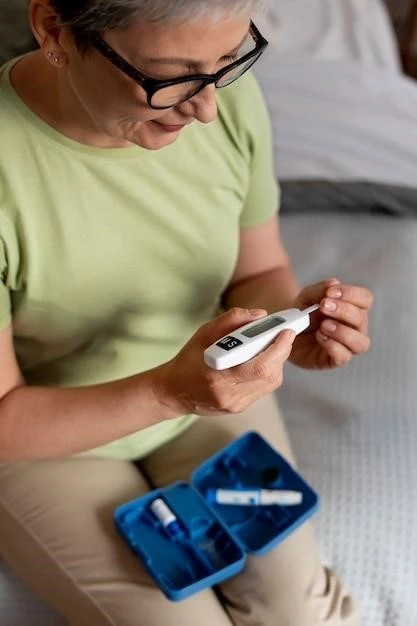Article Plan⁚ Uses and Side Effects of Nesina in Treating Type 2 Diabetes
Understanding Nesina’s uses is crucial. Always be aware of common and severe side effects. Know how Alogliptin works and how to manage glucose levels and interactions.
Introduction to Nesina Medication
Nesina (Alogliptin) is a medication used to treat type 2 diabetes. It belongs to a class of drugs called dipeptidyl peptidase-4 (DPP-4) inhibitors. Nesina works by increasing the level of incretin hormones in the body‚ which helps lower blood sugar levels. Always follow your healthcare provider’s instructions closely when taking Nesina to manage your diabetes effectively.
Common Side Effects of Nesina Medication
Common side effects of Nesina may include runny or stuffy nose‚ sore throat‚ headache‚ joint pain‚ or back pain. These side effects are usually mild and may go away as your body adjusts to the medication. However‚ if they persist or worsen‚ contact your healthcare provider. It is essential to report any unusual or severe side effects promptly to your doctor.
Information on Alogliptin (Nesina) for Lowering Blood Sugar Levels
Alogliptin‚ sold under the brand name Nesina‚ is effective in lowering blood sugar levels by increasing incretin hormones. It helps regulate blood glucose levels in individuals with type 2 diabetes by stimulating insulin release and decreasing glucagon production. Consult your healthcare provider for personalized advice on using Nesina to manage your diabetes.
Liver Problems and Other Serious Side Effects of Nesina
While rare‚ Nesina (Alogliptin) may cause serious side effects like liver problems‚ pancreatitis‚ severe joint pain‚ or allergic reactions. It is crucial to seek immediate medical attention if you experience symptoms such as persistent nausea‚ severe abdominal pain‚ or signs of an allergic reaction like rash‚ swelling‚ or difficulty breathing.
Allergic Reactions and Severe Symptoms Associated with Nesina

Allergic reactions to Nesina may lead to severe symptoms like rash‚ itching‚ swelling‚ dizziness‚ or trouble breathing. If you notice any signs of an allergic reaction after taking Nesina‚ seek immediate medical help. Do not ignore any severe symptoms and inform your healthcare provider promptly to address any concerns regarding allergic reactions.
Monitoring Glucose Levels and Drug Interactions with Nesina
Regularly monitor your blood sugar levels while taking Nesina to ensure effective diabetes management. Additionally‚ be cautious of potential drug interactions with Nesina‚ especially with medications that affect blood sugar. Inform your healthcare provider about all the medications you are taking to avoid any harmful interactions and maintain optimal treatment outcomes.
